Red Squirrel
[H]F Junkie
- Joined
- Nov 29, 2009
- Messages
- 9,211
So I bought an oscilloscope... Thought I'd share various UPS outputs from around the house while playing with my new toy. 
Ultra 1000AP:
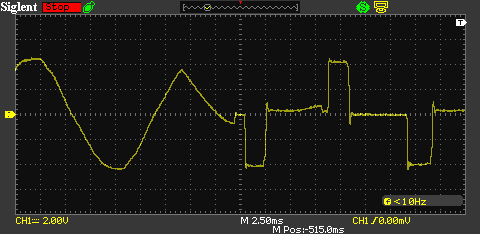
(switching to UPS power)

APC Back UPS ES 750:
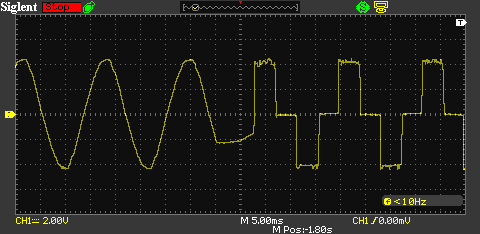
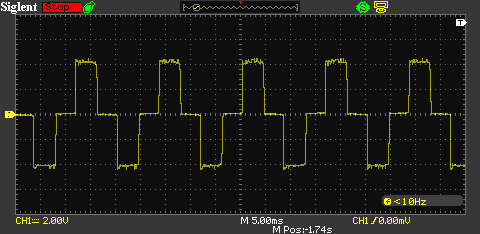
Tripp Lite APS 750 inverter-charger: (I was expecting better, this is a slightly higher end unit)
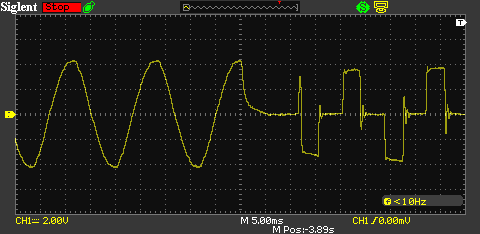
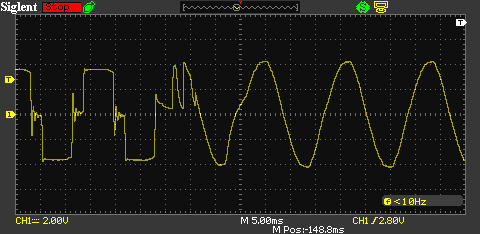
(returning to AC power... good feature of this UPS is that it waits several seconds to ensure AC is stable)
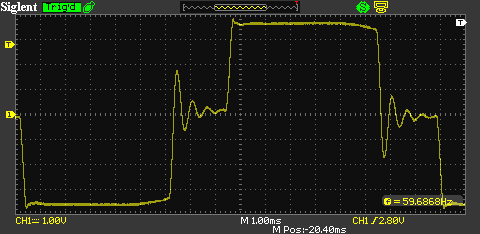
Closer look at the wave
APC Back UPS XS1000:
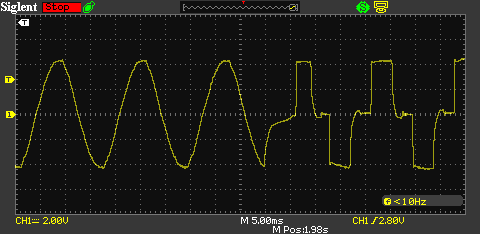
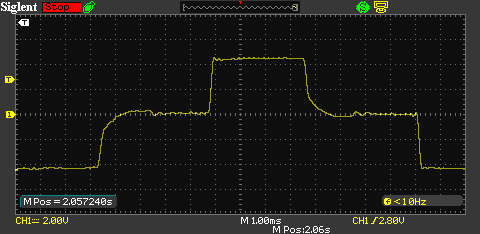
Note: This is not exactly a scientific comparison, just random tests. To make true comparisons I'd need to pull the power at specific times during the AC cycle to see the different ways they react. They also have different loads. The APS 750 has the highest.
Ultra 1000AP:

(switching to UPS power)

APC Back UPS ES 750:


Tripp Lite APS 750 inverter-charger: (I was expecting better, this is a slightly higher end unit)


(returning to AC power... good feature of this UPS is that it waits several seconds to ensure AC is stable)

Closer look at the wave
APC Back UPS XS1000:


Note: This is not exactly a scientific comparison, just random tests. To make true comparisons I'd need to pull the power at specific times during the AC cycle to see the different ways they react. They also have different loads. The APS 750 has the highest.
![[H]ard|Forum](/styles/hardforum/xenforo/logo_dark.png)